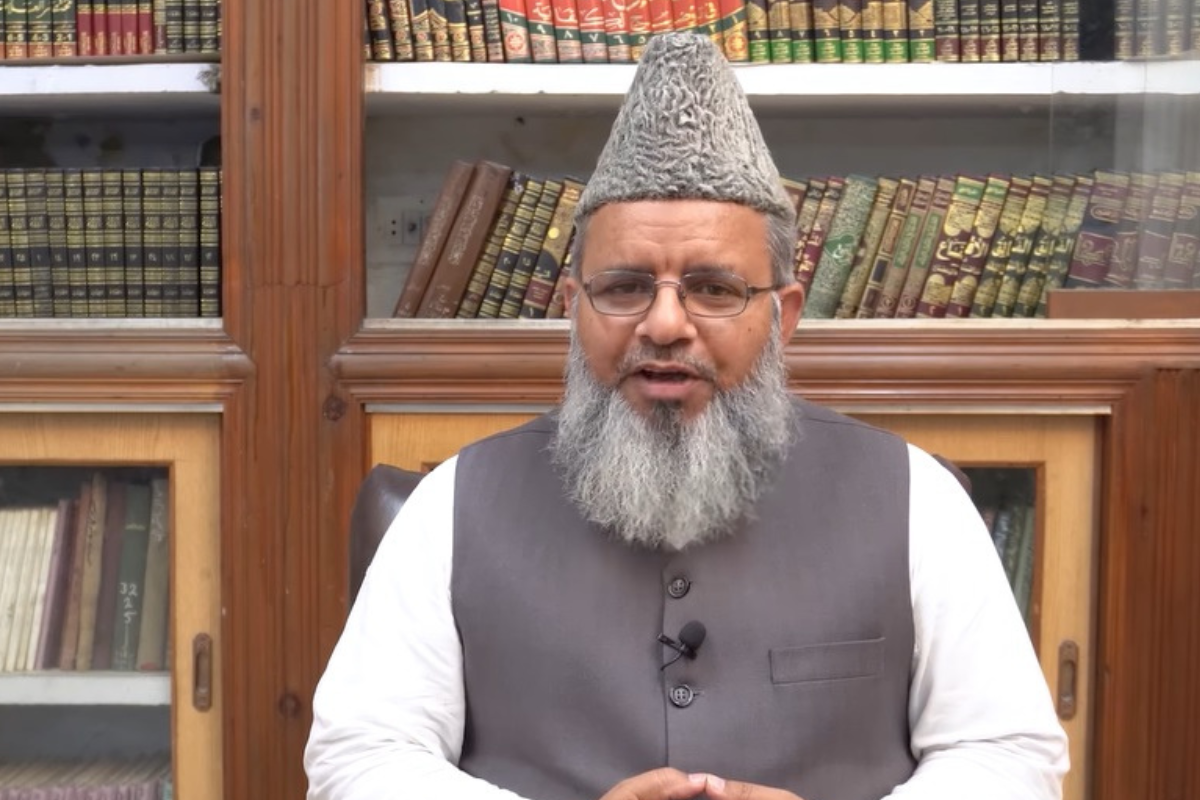Saved by a typo. Pakistan’s top religious body clarifies VPN use not un-Islamic
CII chairperson says content misuse, not tools like VPNs, concerns CII under Islamic law
News Desk
The News Desk provides timely and factual coverage of national and international events, with an emphasis on accuracy and clarity.

Dr. Raghib Naeemi, chairman of the CII.
Screengrab/Facebook |(Paigham e Aman)
Content misuse, not tools like VPNs, concerns CII under Islamic law
CII urges VPN registration to align with regulations and Shariah
PTA blocks 100,183 blasphemous URLs, 20m daily attempts to access pornPakistan’s top religious body, the Council of Islamic Ideology (CII), on Wednesday clarified that virtual private networks (VPNs) are not inherently "haram" or un-Islamic.
Addressing a press conference in Islamabad, Dr. Raghib Naeemi, chairman of the CII, attributed the confusion to a typo in a previously issued statement.
"VPNs were never declared un-Islamic or unlawful. The misunderstanding arose from a single word mistakenly omitted," he said.
Last week, the CII, which advises the government on ensuring laws align with Islamic principles, had in a statement labelled VPN use un-Islamic. This prompted a significant public debate.
In the presser, Dr. Naeemi explained that no social media platform or tool is inherently unlawful in Islam.
"It is the manner of use—whether for constructive or harmful purposes—that determines its compliance with Shariah," he added.
- YouTubewww.youtube.com
CII member Allama Tahir Ashrafi also highlighted the importance of controlling content on social media to prevent the spread of blasphemy and obscene material. He stated that many blasphemy-related cases stem from online content.
"Social media can be a tool for good, like promoting Islamic teachings and education, or it can spread hatred and immorality," Ashrafi said. "Our concern is with its misuse, not political motives or any specific VPN usage."
The CII reiterated its recommendation for registering VPNs and urged the public to comply with government regulations.
Dr. Naeemi advised using registered VPNs for legitimate purposes such as education and communication. "Modern technology should be used responsibly and in accordance with Islamic teachings," he maintained.
Responding to a journalist’s question about the government’s control over VPNs, Ashrafi clarified that the CII’s primary concern is regulating content to protect societal values.
"We are not against VPNs or any specific tool. Our aim is to stop blasphemy and immoral content," he said.
"An Islamic government has the duty to facilitate the lawful use of technology while curbing its misuse," Dr. Naeemi said. "We believe restrictions alone are insufficient; alternatives and positive uses must also be encouraged."
The council announced plans to collaborate with experts for further research on this subject from a Shariah perspective.
Un-Islamic or not?
The CII’s earlier declaration of VPNs as "un-Islamic" coincided with the government’s efforts to regulate and whitelist VPN usage. These measures, spearheaded by the Pakistan Muslim League-Nawaz (PML-N)-led coalition, were aimed at bolstering security and ensuring compliance with regulatory frameworks.
While the government defended the regulations as essential for national security, they sparked significant public resistance, particularly amid fears of censorship.
- YouTubewww.youtube.com
In February 2024, the federal government banned access to X (formerly Twitter), leading to a dramatic surge in VPN downloads as citizens sought ways to bypass restrictions.
On November 10, these tensions reached a peak when Pakistan temporarily shut down mobile broadband services and blocked free VPN platforms for several hours.
The disruption ended only after intervention by IT industry representatives, underscoring the fragile balance between government control and public access to digital tools.










Comments
See what people are discussing